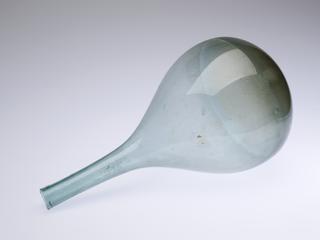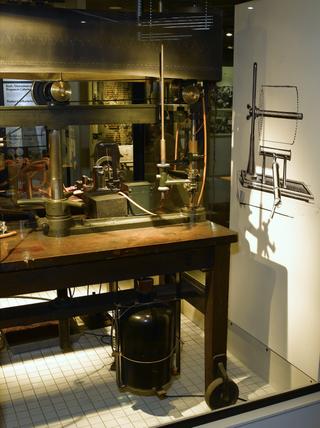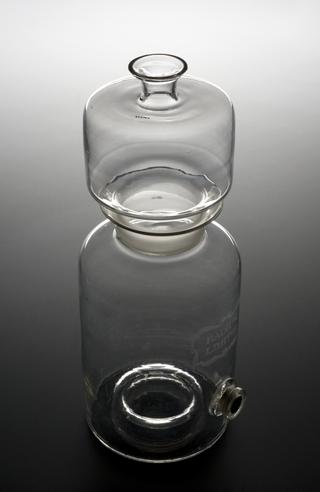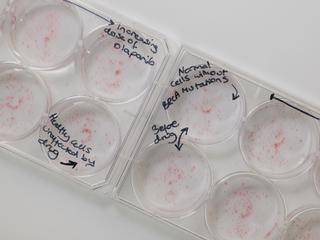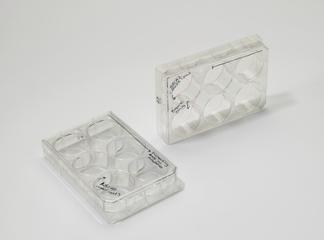
Chromatography columns, United Kingdom and Sweden,1975-1985
- Made:
- 1975-1985 in United Kingdom and Sweden
- maker:
- Pharmacia Fine Chemicals AB
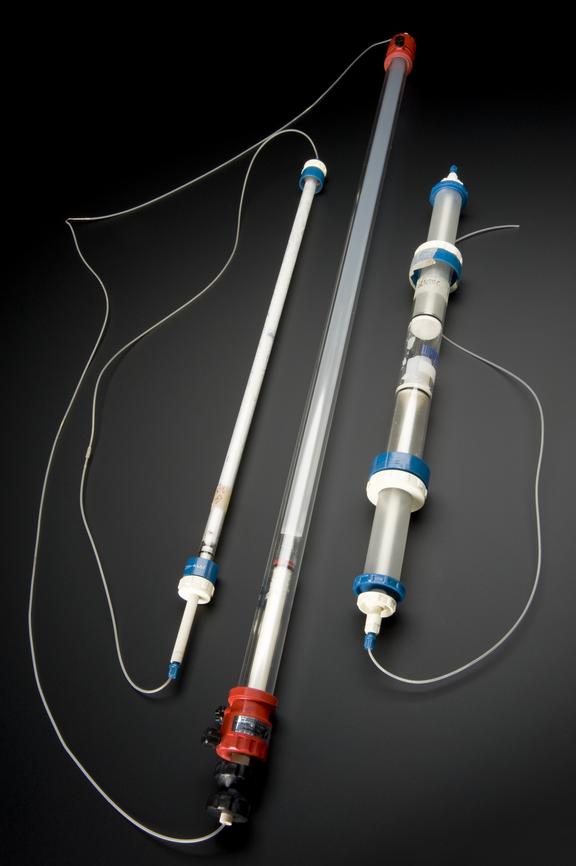
15 Chromatography columns, from Dr.E. Tuddenham's factor VIII research group at The Royal Free Hospital
Recombinant Factor VIII is an essential blood clotting component. Pioneering research into it was carried out in the early 1980s, headed by Dr E Tuddenham at The Royal Free Hospital, London. Recombinant Factor VIII was identified as a protein, known as an antihaemophilic globulin. These four chromatography columns were part of a set of 15 and were used by researchers to isolate such chemical compounds.
Haemophilia is an inherited disease in which the blood does not clot properly. It can lead to excessive bleeding and sometimes death. Factor VIII can help haemophilic blood to coagulate. The researchers also identified all the mutations causing Haemophilia A. They created the methods for tracking these through families. The columns are made of plastic and glass and were manufactured by companies in Sweden and the UK.
Details
- Category:
- Laboratory Medicine
- Object Number:
- 1994-1239
- Measurements:
-
overall (largest): 1100 mm 50 mm,
overall (smallest): 390 mm 40 mm,
- type:
- chromatography equipment
- credit:
- Tuddenham, Edward G D
